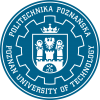Two weeks ago, Science journal published groundbreaking research in the frontier of quantum chemistry. This publication is a fruit of collaborative work of three group from the Institute for Molecules and Materials, Radboud University in Nijmegen led by one of our good colleague, once member of DoSPaN team.
The scientists developed a quantum chemistry emulator and used it to create molecular structures that resemble those of organic molecules. Wanting to create artificial molecules that resemble real ones, they devised a sample system where few precisely positioned Cs atoms (thanks to STM based atom manipulation) create energy potentials and trap electrons. Those structures are considered artificial atoms due to their electronic fingerprint and are later used to build artificial molecules. In the publication authors present example of one of the well-known organic molecule, namely benzene – the starting molecule for a large number of chemicals, as well as ones that are chemically unstable (e.g. symmetric cyclobutadiene).
Furthermore, thanks to this achievement, it is possible to simulate the behavior of molecules that are chemically unstable or hard to synthesize, and thus it becomes possible to modify and explore the properties of the molecules in a way that would normally be extremely difficult. This discovery could have a huge impact on our understanding of how molecules change.. Using the simulator, scientists from Radboud University can understand intermolecular reactions much better, which is invaluable in almost every imaginable field of science. For example, new materials for electronics of the future are really difficult to fabricate, by creating a simulated version, you can look for new properties and functionalities of some molecules and assess whether it is worth creating a real material for this purpose!
You can read more about this fascinating research >>HERE<< and in supplementary materials.
The DoSPaN team wishes you continued success and looks forward to more spectacular achievements in the future!




